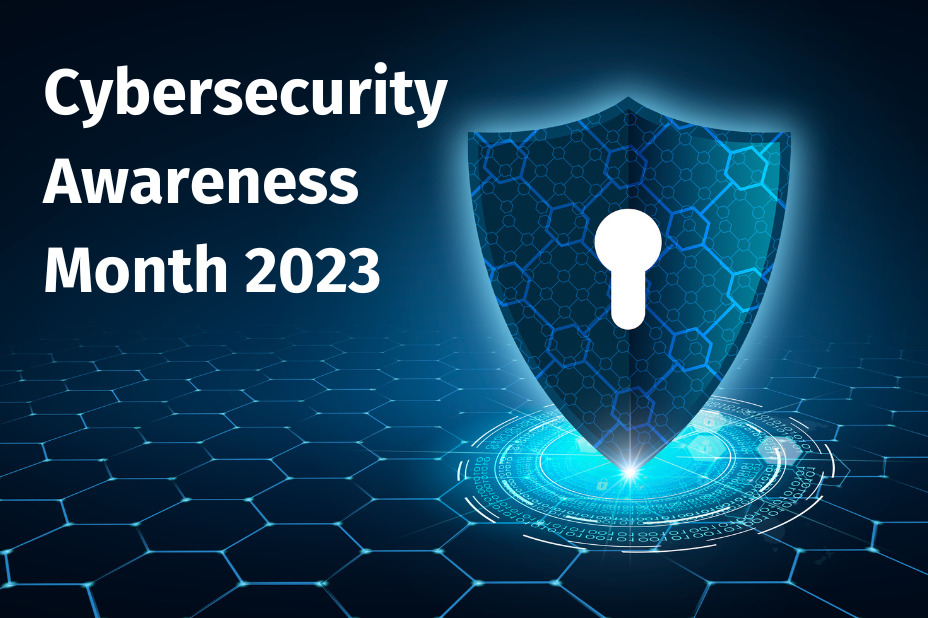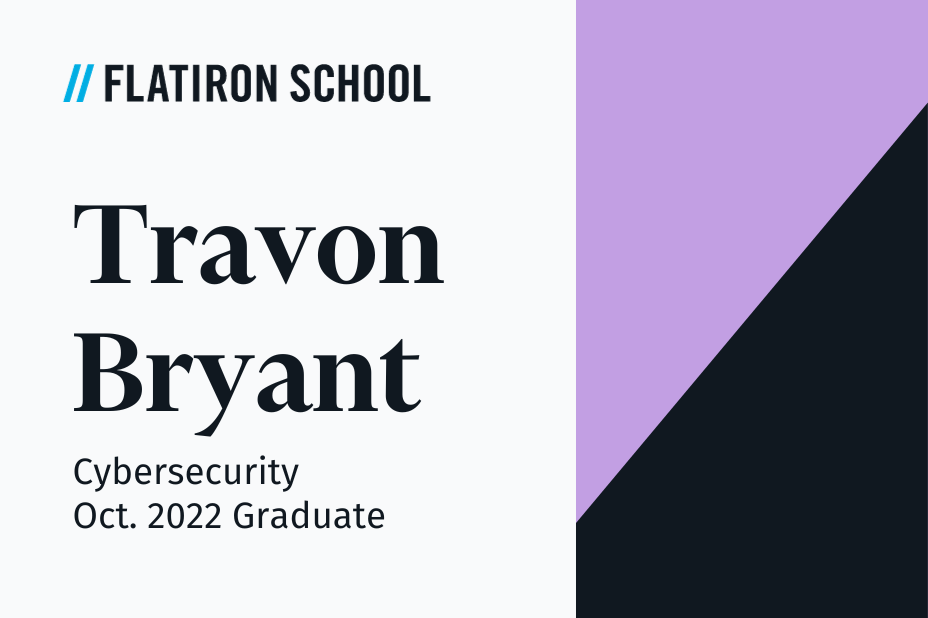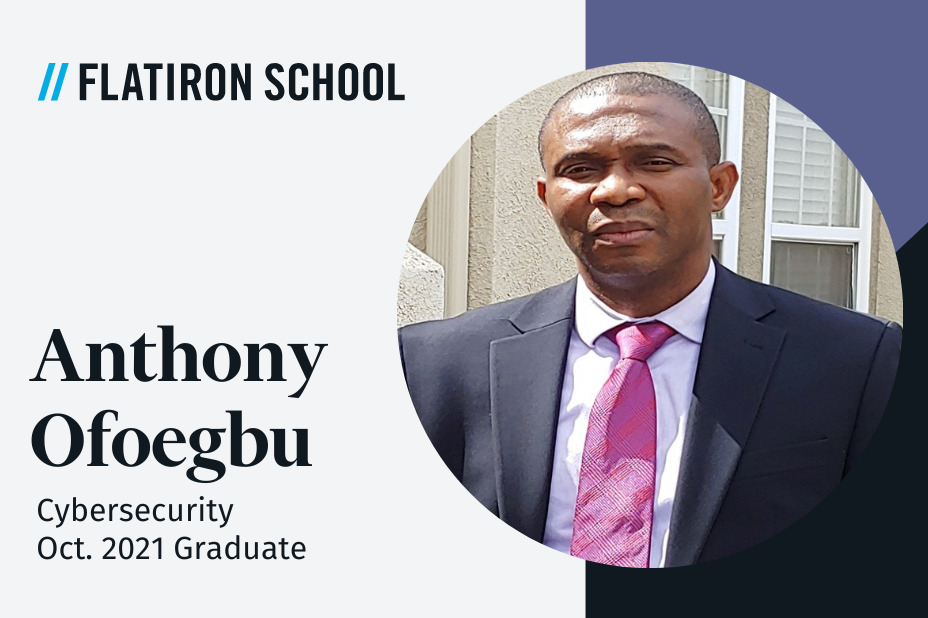2023 is the 20th anniversary of Cybersecurity Awareness Month. All October long, while Halloween candy fills stores, government agencies and private industry organizations collaborate to ensure every American has the resources to stay safe and secure online.
So, in honor of the Cybersecurity industry keeping individuals, companies, and governments safe on the web (and your yearly reminder that ‘Password’ should never be your actual password), we’re featuring 5 recent Cybersecurity grads and their reasons for pursuing a career in the field.
Usman Sikander: Mechanical Engineer to Cybersecurity Analyst
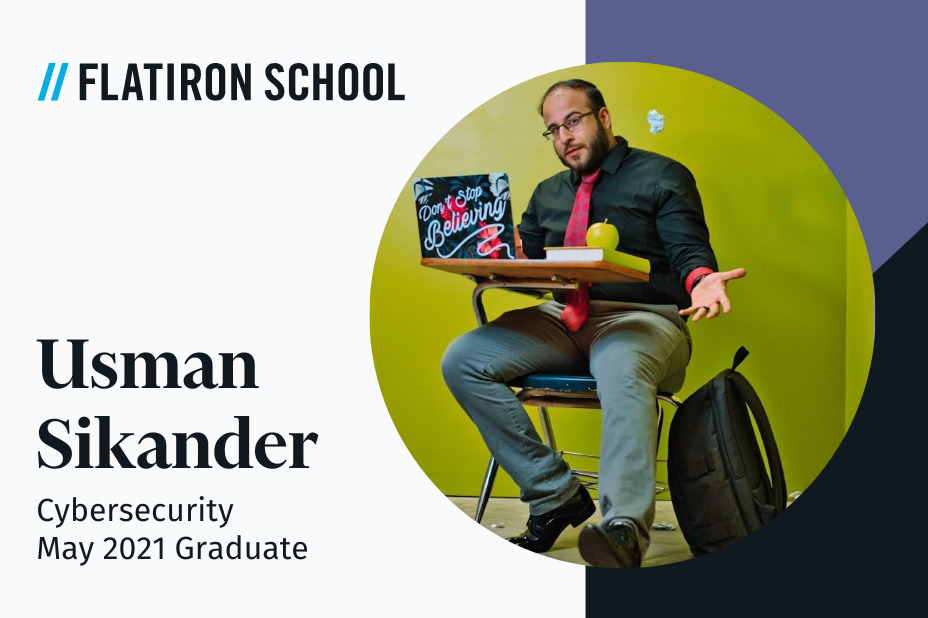
Usman Sikander, a May 2021 Cybersecurity Analytics* graduate from Flatiron School, began his career in mechanical engineering. Eventually, an interest in the digital world of cybersecurity led him to tech.
“I was drawn to the field […] due to its dynamic nature and the ever-growing importance of securing digital assets in our increasingly connected world,” he explained. “The constant evolution of technology presents both opportunities and challenges. I was captivated by the idea of playing a crucial role in safeguarding sensitive information and defending against cyber threats.”
When we spoke with Usman in June 2023, he’d been working as a Cybersecurity Analyst and White Hat Hacker at Warehouse Services, Inc. for just under 2 years. He has only good things to say about his new career.
“Working in cybersecurity has been a fulfilling and exciting experience. The opportunity to protect organizations and individuals from cyber threats, analyze vulnerabilities, and develop robust security strategies is deeply satisfying. The reality of the field certainly lives up to the initial allure and expectations.”
Read his full career change story.
Igor Vlasenko: Air Traffic Control to Cybersecurity
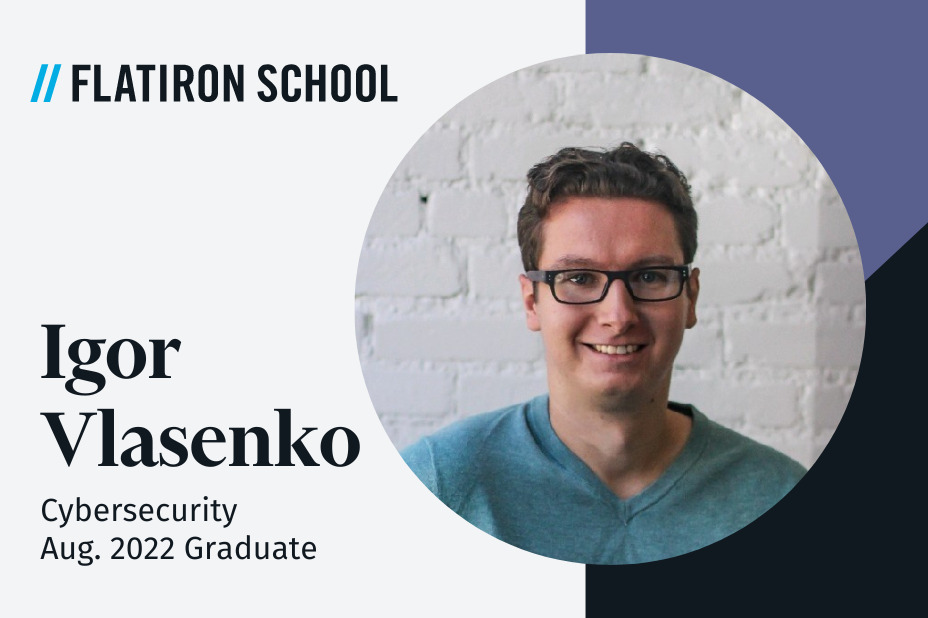
Igor Vlasenko, an August 2022 Cybersecurity Engineering graduate from Flatiron School, grew up in Ukraine and went to university to be an air traffic controller. After moving to the USA as an adult, he decided to pursue Cybersecurity for a technical challenge.
“I didn’t feel challenged. When I asked myself if doing what I was doing every day at work helped me get where I want to be, I did not get a satisfactory answer,” he explained. “That was the primary reason I decided that I had to do something about it.”
As to why he settled on Cybersecurity, Igor cites a “curiosity” about the field.
“I would read news articles about recent cybersecurity breaches throughout various industries around the world,” he said. “And I often found myself not understanding the specifics of adversary techniques and defense mechanisms. I wanted to understand it better and be able to protect myself and others.”
After graduating, Igor accepted a Senior Information Security Analyst position with Western Union, based in his new hometown of Denver, Colorado.
Read his full career change story.
Maxwell Wolfe: DJ to Cybersecurity
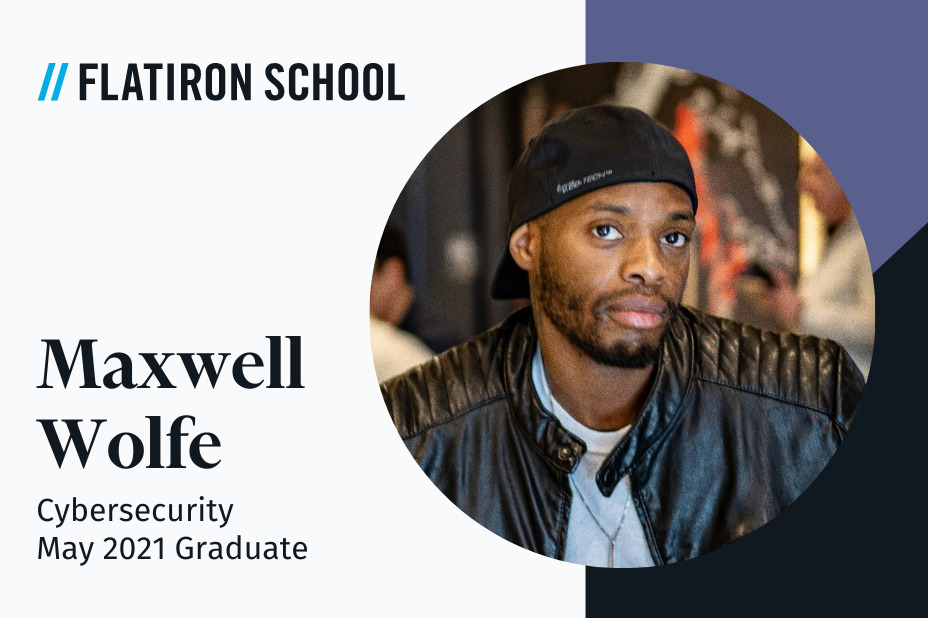
Maxwell Wolfe, a May 2021 Cybersecurity graduate, says that he could easily fill the pages of a book to explain the winding career path he’s taken to get where he is today. He held a string of unrelated, hands-on positions until the pandemic left him without an income and casting about for his next move.
But, in his search for a new career, Maxwell didn’t have to go far. He went back to his early curiosity in “gadgets,” renewing his interest in a tech career he’d long ago discounted as unrealistic.
“Tech and video games always intrigued me,” he recalled. “But I never thought I was cut out for a career in tech until I stumbled upon some free online resources.”
His decision to pursue Cybersecurity specifically, however, was driven by a more recent experience.
“The TV show Mr. Robot was a significant catalyst, inspiring me to dive into tech and, more specifically, ethical hacking. The idea of protecting individuals or non-profit organizations sparked my desire to contribute positively to society and prompted me to embark on this new career path.”
After graduating, he worked as a SOC Analyst at a technology company for over a year. After taking some time off to earn additional certifications and enhance his skills, Maxwell opened Wolfhart IT, an IT service provider and consulting firm, in mid-2023. In early July he shared on LinkedIn that his company had signed its first contract.
Read his full career change story.
Roger Brown: Amazon Career Choice 2021
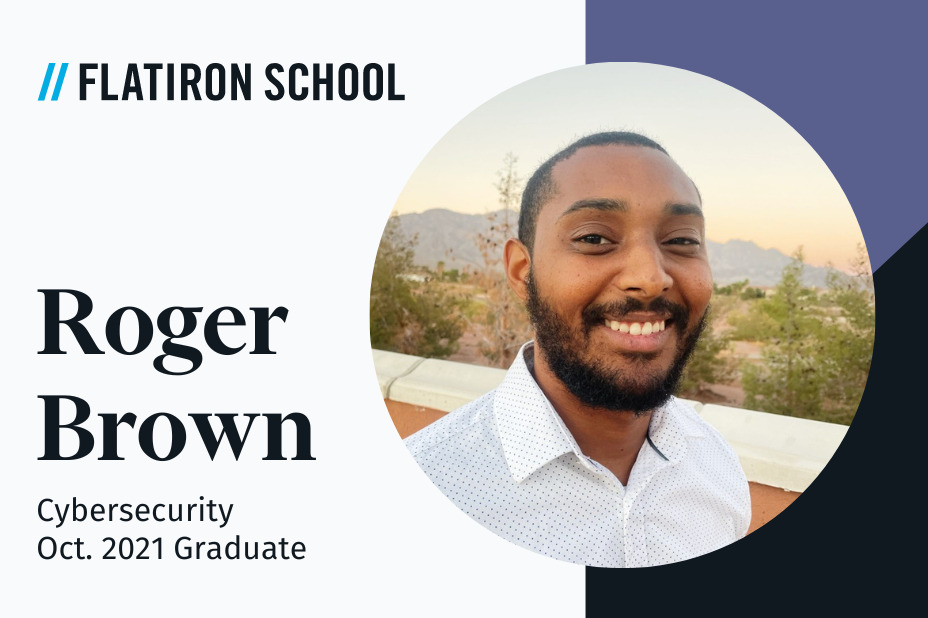
Roger Brown, an October 2021 graduate of the Amazon Career Choice Cybersecurity Engineering program, transitioned into tech by way of Amazon’s Career Choice program. He began his career in hospitality, working in the field for several years before transitioning into tech.
“I was drawn to the constantly evolving nature of the tech industry and the opportunity to work with cutting-edge technology.”
In early 2021, he’d been working as an Inbound Problem Solver at Amazon for two years when he learned about the Amazon Career Choice program. The program allows Amazon employees to receive technical training from partner institutions to pursue higher-paying career paths.
Roger was accepted and enrolled with a cohort of fellow students from Amazon. The program ran for 32 weeks from February through October with the curriculum delivered online via live lectures. Students completed about 15 hours a week of classwork while continuing to work full-time, a logistical challenge for any new student.
“Balancing the intense coursework with my other responsibilities was challenging,” Roger recalled. “But, my favorite part of the program was the hands-on projects, which allowed me to apply what I had learned and see the results firsthand.”
When we chatted with Roger in early 2023 he reported that he was “working as a Cybersecurity Specialist at a top tech company.”
Read his full career change story.
Travon Bryant: Amazon Career Choice 2022
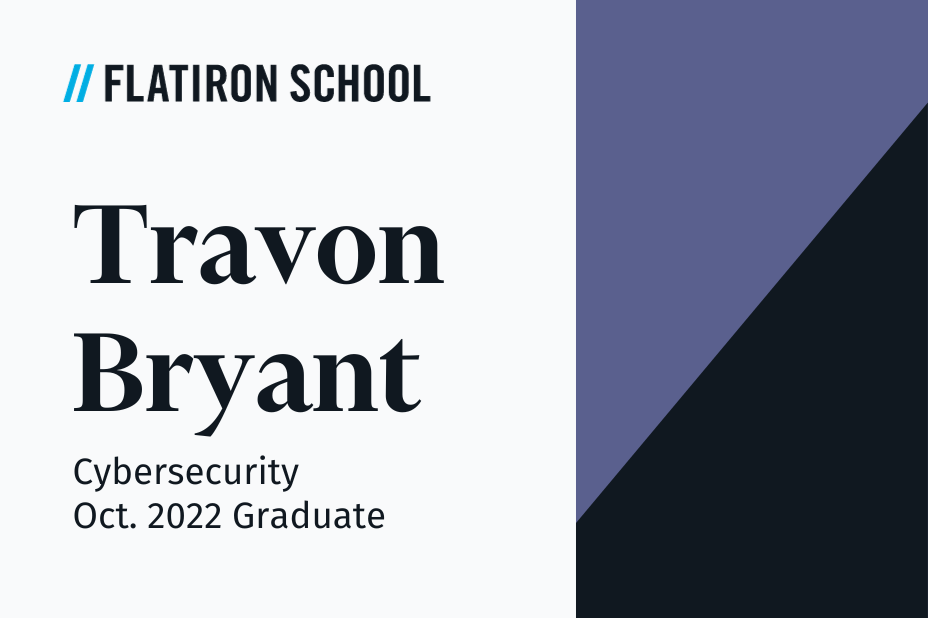
Travon Bryant, an October 2022 graduate of the Amazon Career Choice Cybersecurity Engineering program, began his career by earning an Associate of Science degree and spent the next 11 years as a pharmacy technician. But, a decade in, Travon’s priorities had changed, and he decided it was time to pivot.
“I chose to make the switch because the pharmacy wasn’t paying the bills,” he explained. “I wanted to get a good-paying job to be able to take care of my family.”
It was while working for Pillpack – a pharmaceutical management service acquired by Amazon in 2018 – that Travon learned about the Amazon Career Choice program. The program allows Amazon employees to receive technical training from partner institutions to pursue higher-paying career paths. While exploring the program, Travon settled on applying for the Amazon Career Choice Cybersecurity Bootcamp taught by Flatiron School.
“I was always interested in securing networks and the tools that were involved,” he said. “I needed a change, so when presented with the opportunity [to change careers], I took it.”
Upon graduating in October 2022 with a brand new Cybersecurity skillset, Travon quickly secured his first opportunity. When we spoke with him in June 2023, he had only good things to say about working in his industry.
“My job search was brief. I had 3 interviews before getting a job at a bank in a rotational program where I rotate every 8 months to a new cybersecurity team. I love my new field, it definitely lives up to my dream. I’m proud I’m in the field at a good company.”
Read his full career change story.
Secure The World With Cybersecurity
Has a career in cybersecurity always fascinated you? Do you often try to convince your family and friends to update their passwords? Then a career in cybersecurity might be the perfect fit for you!
Apply Now to join career changers like those featured above in a program that’ll give you the cybersecurity skills you’ll need to land your first job in tech.
Not ready to apply? Try out our Free Cybersecurity Prep Work and test-run the material we teach in the course. Read more stories about successful career changes on the Flatiron School blog.
*The Cybersecurity Analytics program is no longer available. For prospective students interested in this course of study, visit the Cybersecurity course page to learn more.
